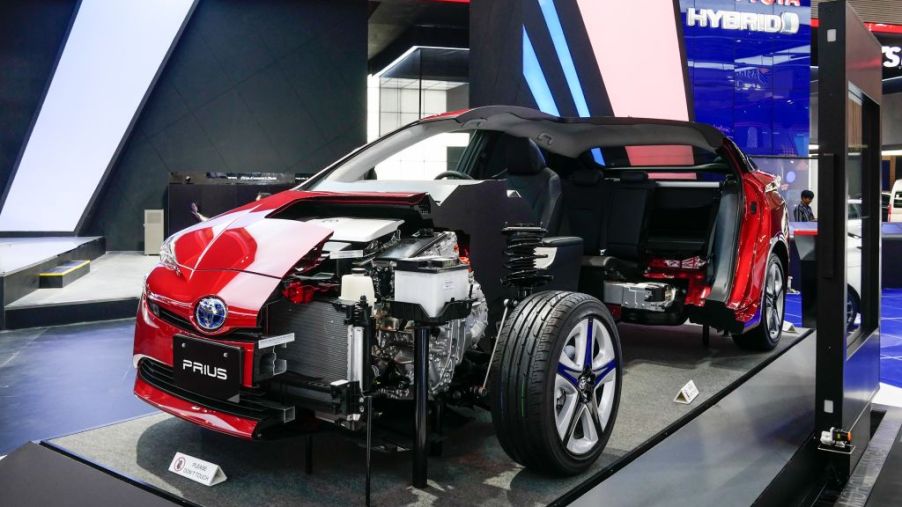
Are Solar Panel Cars the Electric Vehicle of the Future? Toyota Thinks So
If you’ve ever thought of putting solar panels on a hybrid or electric car, you’re not alone. Hyundai recently revealed its Sonata hybrid decked out with rooftop solar panels, and Toyota wants to do the same for its Prius. On the surface, it seems like a great idea, but there are some caveats. This isn’t stopping automakers from pursuing it though, and here’s why.
Free range
Hybrids and electric cars depend on electricity, which is stored in their massive battery packs. More often than not, those batteries must be recharged, either at home or at a charging station. Furthermore, solar panels are a way to generate electricity.
Thus, it makes sense to install solar panels on the roof of a hybrid or electric car. While parked, those panels will turn sunlight into electricity and recharge your car’s battery. It’s like getting free gas for your car. However, things aren’t that peachy in reality.
Conversion efficiency
When it comes to solar panels, it’s all about conversion efficiency, which is simply the percentage of the sun’s power that gets turned into actual electricity. In an ideal world, it’d be 100%. However, due to physics, most solar panels’ conversion efficiency is much lower than that. Scientists are continuously trying to improve this, but it’s an ongoing process.
Toyota claims the solar panels that will be on the Prius will have a pretty good conversion efficiency of 34%. This is significantly higher than the average conversion efficiency of most solar panels.
However, there’s no guarantee the sun will shine every day nor is it guaranteed that your panels are perfectly positioned to receive sunlight. It’s also possible that dust and debris on your panels will reduce how much electricity they can generate.
Reality
That’s why Toyota and Hyundai are not suggesting solar panels will fully recharge your car’s battery. Toyota says its panels on a parked Prius can generate enough electricity to boost its range by 3.7 miles per day. According to Hyundai, letting the Sonata’s solar panels charge for six hours a day will boost the car’s range by about 800 miles annually. That’s equal to about 2.2 extra miles per day.
So, while having solar panels on your car won’t recharge your batteries anytime soon, they have plenty of practical purposes for them. The most important one is that the free electricity they get is guaranteed to be clean energy. If you recharge your car at home or a charging station, there’s a good chance the electricity you use comes from fossil fuels. Plus, although the extra range you’ll get isn’t that much, it’s still free.
On top of that, a few extra miles of free range a day is perfect for urban drivers who have a short daily commute. The average American driver has a 30-mile commute, according to AAA. So, three miles of range from rooftop solar panels is equal to about 10% of the average commute, but for free.
Plus, Toyota cites the ability to charge on the go is useful for people in dangerous situations. If a hurricane is coming, you won’t need to wait a few hours for your car to charge, there’s probably some juice in the battery from its solar panels.
That’s why Toyota is investing in solar rooftop technology right now. Every year, scientists are creating more efficient solar panels. So, even if these rooftop panels aren’t great currently, in the future, they will be.



